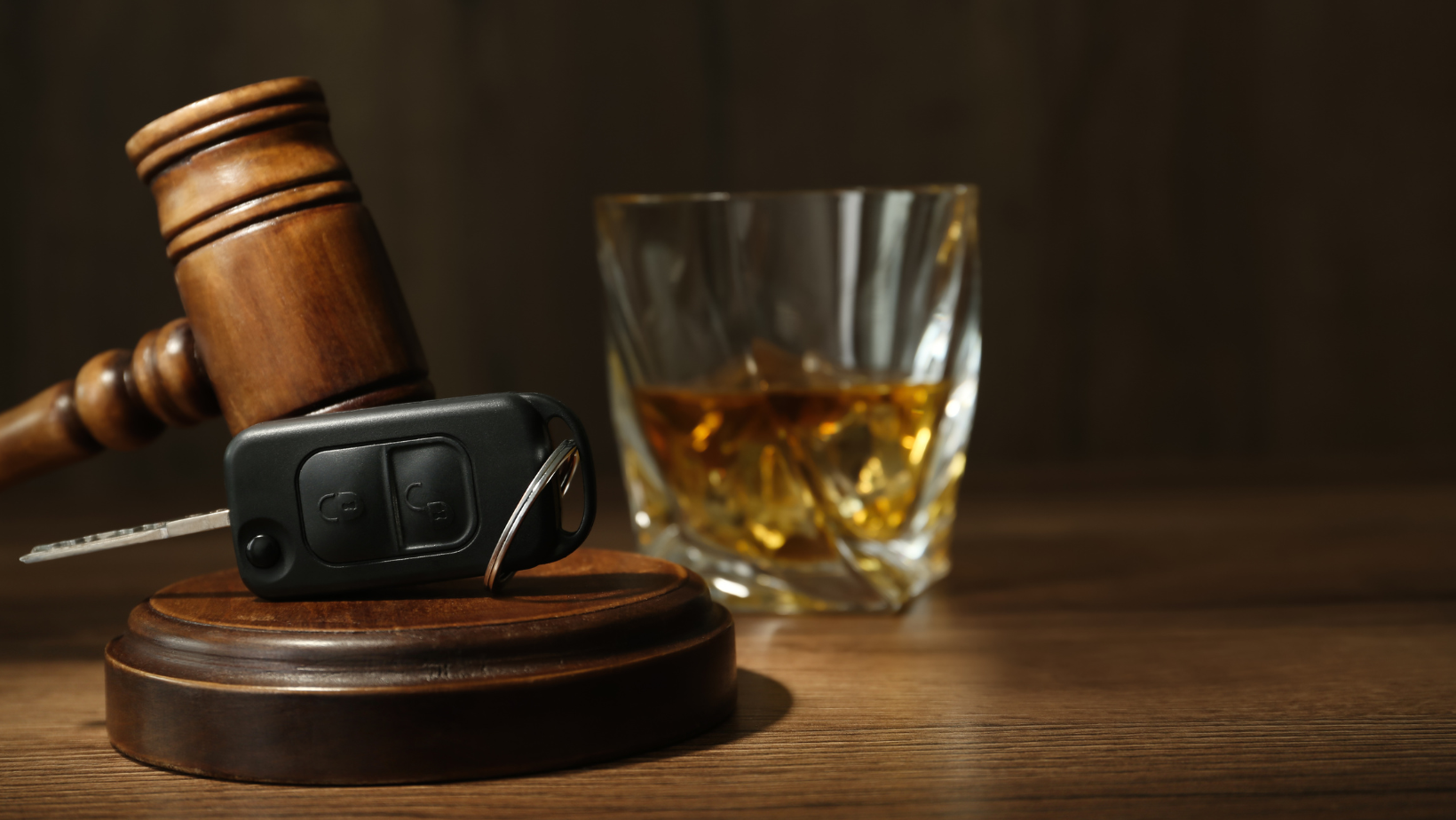The state of New York takes drunk driving offenses very seriously. However, DWI charges and penalties vary depending on many different variables. If you have been charged with drunk driving in New York, it is important to get the assistance of a Nassau County criminal lawyer to answer any questions and defend you against serious charges. At Lebedin Kofman LLP, our lawyers are experienced in handling DWI cases and can provide you with the representation you need. We understand the potential consequences of a DWI conviction, such as license suspension, fines, and even jail time. If you’re wondering what happens after a DWI arrest, we can guide you through the legal process and fight vigorously to protect your rights. Don’t face these charges alone – reach out to us today at (516) 212-4209 to schedule a confidential consultation.
In New York, drunk driving charges will range from a misdemeanor to a felony depending on the amount of alcohol consumed, whether it is a first offense and other factors. While a first drunk driving charge is usually considered a misdemeanor, this can quickly escalate into felony charges upon second and third convictions.
DWI vs DUI New York
In everyday conversation, outside the legal context of New York’s courtrooms, people often use the terms DWI (Driving While Intoxicated) and DUI (Driving Under the Influence) interchangeably. However, legally, New York law does not specifically recognize DUI as a legal term. Attorneys and judges commonly refer to cases involving impaired driving as DWI cases.
DWI refers to cases where individuals operate a vehicle while impaired by alcohol, with a blood alcohol content (BAC) of at least 0.08%, which is the legal limit for driving while intoxicated in New York.
On the other hand, DUI stands for “Driving Under the Influence.” This term encompasses cases where drivers are impaired not only by alcohol but also by any other substance that alters their mental state. This includes marijuana, heroin, certain prescription drugs like oxycodone and hydrocodone, and others. Both DWIs and DWAIs (Driving While Ability Impaired) can be considered types of DUIs. In this sense, New York regards DUI as more of a comprehensive category that encompasses different forms of impaired driving.
It’s important to note that you can be charged with any type of DUI without actually driving your vehicle. If you are under the influence of drugs or alcohol and turn on your engine, even without the intention of driving, you can still be held liable for a DUI offense.
When dealing with DWI charges in New York, it is essential to have the assistance of a Manhattan DWI lawyer. Lebedin Kofman LLP understands the importance of providing you with comprehensive support during your case. Our team of lawyers is dedicated to safeguarding your future and striving for the most favorable outcome for your specific situation. Whether it involves negotiating plea deals or pursuing the dismissal of charges, we are committed to guiding you through the process. Don’t face DWI charges alone – contact us today for the help you need.

Implied Consent Law and DWI Stop in New York
New York laws state that anyone who drives a motor vehicle within the state is presumed to have consented to chemical testing to determine their blood alcohol and drug levels. Usually, in these cases, a police officer might pull you over and request that you submit to a breathalyzer. If your breath test shows that you have been drinking, or if you are taken into custody, a police officer might request that you take a sample from your blood, saliva, urine, and breath to be tested for alcohol.
It is possible for you to decline these tests. However, by declining, your driver’s license may be suspended immediately and then revoked if you refuse to take a chemical test. The police cannot force you to take a test if you refuse to comply unless they get a court order.
Speaking to an experienced lawyer may be helpful if you are facing DWI charges in New York. A skilled criminal defense attorney may be able to help you fight for your rights and protect your freedom. Lebedin Kofman LLP’s team of DWI lawyers have years of experience helping defendants fight their DWI charges. Contact Lebedin Kofman LLP today to schedule a free consultation.
What are the Penalties for a DWI in New York?
In New York, there are several categories of drunk driving charges.
A DWAI, or driving while alcohol-impaired charge, is driving while impaired by alcohol, but your BAC is under the limit of .08 percent. It becomes a DWI/DUI when the BAC is over the .08 percent limit. First-time DWAI convictions can be punished by
- Fines of $300 to $500
- Jail time of up to 15 days
- A 90-day suspension of your license
A second and third DWAI will see increased fines, jail time, and driver’s license suspension time, but these charges remain misdemeanors.
A DWI conviction is where charges can go from a misdemeanor to a felony. A first DWI conviction with a greater than .08 percent up to a .18 percent BAC will be regarded as a misdemeanor with penalties of
- Fines of between $500 and $1,000
- Up to a year in jail
- A minimum of one year driver’s license suspension
A second DWI conviction within ten years of the first will be considered a class E felony, subject to
- Fines of between $1,000 and $5,000
- Up to four years in jail or 30 days of community service
- A minimum of one year of driver’s license revocation
- Installation of an ignition interlock device
If a third DWI is committed within five years, it will be considered a class D felony with the possibility of the following
- Fines of between $2,000 to $10,000
- Up to seven years in jail or 60 days of community service
- A minimum of one year of driver’s license revocation with a possibility of permanent revocation
- Installation of an ignition interlock device
| DWI Offense | BAC Range | Penalties |
|---|---|---|
| DWAI | N/A (BAC < 0.08%) | Fines: $300 to $500, Jail time: Up to 15 days, License suspension: 90 days |
| DWI (1st offense) | 0.08% – 0.18% | Fines: $500 to $1,000, Jail time: Up to 1 year, License suspension: 1 year |
| DWI (2nd offense) | Within 10 years | Fines: $1,000 to $5,000, Jail time: Up to 4 years or 30 days community service, License revocation: 1 year, Ignition interlock device installation |
| DWI (3rd offense) | Within 5 years | Fines: $2,000 to $10,000, Jail time: Up to 7 years or 60 days community service, License revocation: 1 year (possible permanent revocation), Ignition interlock device installation |
Prior Offenses Influence
In New York State, prior DWI offenses significantly affect the legal outcomes of new DWI charges. Previous convictions, whether they occurred within New York or in other states, can substantially increase the severity of the charges faced.
New York law mandates that a simple DWI can escalate to a felony charge if the accused has prior related convictions within the last 10 years, including DWI, DWAI Drugs, Vehicular Manslaughter, or Vehicular Assault. Under these circumstances, a current DWI elevates to a Class E felony, resulting in severe penalties such as the revocation of driving privileges, hefty fines, and potential imprisonment.
Out-of-state DWI/DUI convictions are also taken into consideration in New York when determining the severity of new charges. This means that a DWI charge could result in felony status if the individual has a previous DWI/DWAI/DUI conviction from another state. This illustrates New York’s strict approach to impaired driving and emphasizes the importance of understanding how prior offenses can impact current DWI charges.
A Nassau County criminal lawyer emphasizes the importance of understanding these laws, particularly for individuals with convictions in multiple states. Legal representation well-versed in New York DWI laws is essential for effectively managing felony DWI cases, especially when prior offenses are involved.
Aggravated DWI in New York
If you are caught driving with a BAC of .18 or higher in New York, you can be charged with an aggravated DWI. While this has many of the same penalties as a DWI, the main difference is the duration you will lose your driver’s license.
A first-time aggravated DWI in New York is still a misdemeanor, but your license can be revoked for a minimum of one year. Second and third offenses will be considered felonies and your license can be revoked for a minimum of 18 months. A third offense committed within ten years of the others will put you at risk of losing your license permanently.
Getting the Legal Assistance of an Experienced New York DWI Attorney
No matter what degree of alcohol-related offense you are convicted of, it is still considered a criminal conviction. It will show up on your record, with anyone doing a background check on you able to see it. Having a criminal conviction on your record can have a serious negative impact on your life.
If you have been charged with a DWI in New York, you may have some defense strategies available to you. Call the experienced New York DWI attorneys at Lebedin Kofman at (516) 212-4209 or contact us online to schedule a consultation to discuss your legal options.


